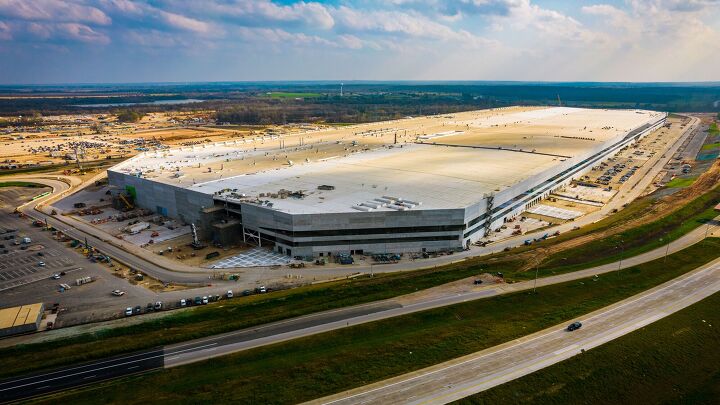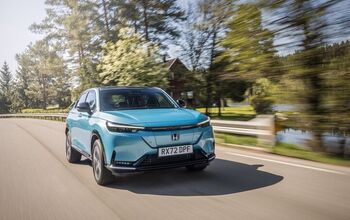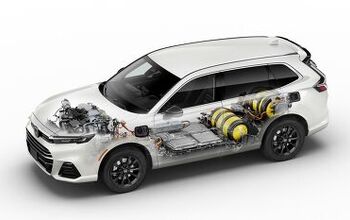Reuters: Tesla Has Ditched Its Affordable EV Efforts in Favor of Robotaxis

Affordable EVs seem to be a nut that no automaker can crack, as every promise of a “sub-$30,000” model or similar has fallen through in favor of higher prices. It now seems that Tesla is following suit, despite repeated promises that it would develop a mass-market EV at a reasonable price. Earlier today, Reuters reported that the automaker had ditched its efforts to develop the car and would look instead at developing autonomous taxis on the platform that would have underpinned it.
CEO Elon Musk has been beating the affordable EV drum for a while, telling investors in January that the car would enter production in Texas as soon as late 2025. The automaker doesn’t have a communications or PR department to respond to inquiries, but Musk posted on X, saying, “Reuters is lying (again).”
The car, which was projected to start in the mid-$20,000 range, would have helped Tesla compete against the increasingly fierce Chinese auto industry. Companies like BYD have built impressive electric vehicle catalogs in recent years, and the automaker has been in a back-and-forth battle with Tesla for the top spot in global markets.
Tesla’s stock, which is more important than the cars for some people, tumbled 3 percent on the Reuters report. The decision was apparently made public, at least internally, in late February, with a source telling Reuters that “Elon’s directive is to go all-in on robotaxi.” Some said they felt optimistic about the call, saying that Musk believes that autonomous people movers are the “future of mobility.”
This course change is surprising and will undoubtedly cause quite a stir, but the truth remains that many automakers are losing serious money on EVs. That makes it exceptionally difficult to be profitable overall and raises questions about affordability for the foreseeable future. Raw materials and manufacturing remain significant financial hurdles to cross, so we’ll just have to wait and see if Elon’s decision is prescient or foolish.
[Image: Tesla]
Become a TTAC insider. Get the latest news, features, TTAC takes, and everything else that gets to the truth about cars first by subscribing to our newsletter.

Chris grew up in, under, and around cars, but took the long way around to becoming an automotive writer. After a career in technology consulting and a trip through business school, Chris began writing about the automotive industry as a way to reconnect with his passion and get behind the wheel of a new car every week. He focuses on taking complex industry stories and making them digestible by any reader. Just don’t expect him to stay away from high-mileage Porsches.
More by Chris Teague
Latest Car Reviews
Read moreLatest Product Reviews
Read moreRecent Comments
- Pau65792686 I think there is a need for more sedans. Some people would rather drive a car over SUV’s or CUV’s. If Honda and Toyota can do it why not American brands. We need more affordable sedans.
- Tassos Obsolete relic is NOT a used car.It might have attracted some buyers in ITS DAY, 1985, 40 years ago, but NOT today, unless you are a damned fool.
- Stan Reither Jr. Part throttle efficiency was mentioned earlier in a postThis type of reciprocating engine opens the door to achieve(slightly) variable stroke which would provide variable mechanical compression ratio adjustments for high vacuum (light load) or boost(power) conditions IMO
- Joe65688619 Keep in mind some of these suppliers are not just supplying parts, but assembled components (easy example is transmissions). But there are far more, and the more they are electronically connected and integrated with rest of the platform the more complex to design, engineer, and manufacture. Most contract manufacturers don't make a lot of money in the design and engineering space because their customers to that. Commodity components can be sourced anywhere, but there are only a handful of contract manufacturers (usually diversified companies that build all kinds of stuff for other brands) can engineer and build the more complex components, especially with electronics. Every single new car I've purchased in the last few years has had some sort of electronic component issue: Infinti (battery drain caused by software bug and poorly grounded wires), Acura (radio hiss, pops, burps, dash and infotainment screens occasionally throw errors and the ignition must be killed to reboot them, voice nav, whether using the car's system or CarPlay can't seem to make up its mind as to which speakers to use and how loud, even using the same app on the same trip - I almost jumped in my seat once), GMC drivetrain EMF causing a whine in the speakers that even when "off" that phased with engine RPM), Nissan (didn't have issues until 120K miles, but occassionally blew fuses for interior components - likely not a manufacturing defect other than a short developed somewhere, but on a high-mileage car that was mechanically sound was too expensive to fix (a lot of trial and error and tracing connections = labor costs). What I suspect will happen is that only the largest commodity suppliers that can really leverage their supply chain will remain, and for the more complex components (think bumper assemblies or the electronics for them supporting all kinds of sensors) will likley consolidate to a handful of manufacturers who may eventually specialize in what they produce. This is part of the reason why seemingly minor crashes cost so much - an auto brand does nst have the parts on hand to replace an integrated sensor , nor the expertice as they never built them, but bought them). And their suppliers, in attempt to cut costs, build them in way that is cheap to manufacture (not necessarily poorly bulit) but difficult to replace without swapping entire assemblies or units).I've love to see an article on repair costs and how those are impacting insurance rates. You almost need gap insurance now because of how quickly cars depreciate yet remain expensive to fix (orders more to originally build, in some cases). No way I would buy a CyberTruck - don't want one, but if I did, this would stop me. And it's not just EVs.
- Joe65688619 I agree there should be more sedans, but recognize the trend. There's still a market for performance oriented-drivers. IMHO a low budget sedan will always be outsold by a low budget SUV. But a sports sedan, or a well executed mid-level sedan (the Accord and Camry) work. Smaller market for large sedans except I think for an older population. What I'm hoping to see is some consolidation across brands - the TLX for example is not selling well, but if it was offered only in the up-level configurations it would not be competing with it's Honda sibling. I know that makes the market smaller and niche, but that was the original purpose of the "luxury" brands - badge-engineering an existing platform at a relatively lower cost than a different car and sell it with a higher margin for buyers willing and able to pay for them. Also creates some "brand cachet." But smart buyers know that simple badging and slightly better interiors are usually not worth the cost. Put the innovative tech in the higher-end brands first, differentiate they drivetrain so it's "better" (the RDX sells well for Acura, same motor and tranmission, added turbo which makes a notable difference compared to the CRV). The sedan in many Western European countries is the "family car" as opposed to micro and compact crossovers (which still sell big, but can usually seat no more than a compact sedan).


































Comments
Join the conversation
The model 3 is using a brand new platform. I think the S may have been updated as well. The main problem with Tesla is that Musk is an arrogant idiot. That leads to all sorts of issues. Everything from lack of focus to alienating much of his customer base via twitter.
As far as technology goes, Tesla (and everyone else) needs to get to 800-900 volt architecture ASAP on all it's vehicles. Not just Cybertruck and Semi. That's where the industry is going. Soon they'll be competing with vehicles like the NIO ET9 that can charge at a rate of 150 miles in 5 minutes. There are other benefits as well to 800-900v architecture.
So, get rid of Musk, 900v architecture across the line, put the psuedo-FSD on the back burner, build a $25k car, and a Model Y based pickup. Above all, tell Elmo to go play with his other toys and to leave Tesla alone.
Musk is not the only problem, but certainly the biggest…
CEOs job is not to generate “likes” and followers on social media and certainly is not to alienate a large percentage of your customers and potential customers. A CEOs job is to legally generate profits and shareholder value.